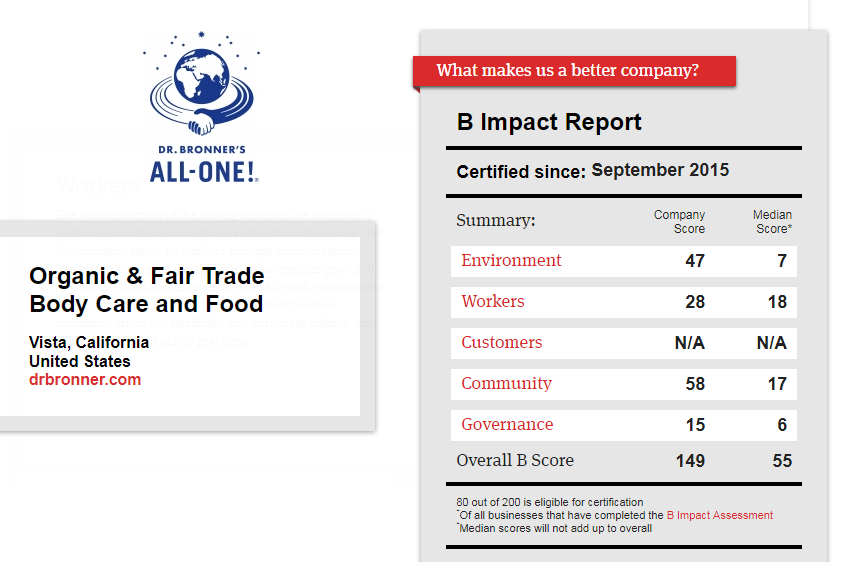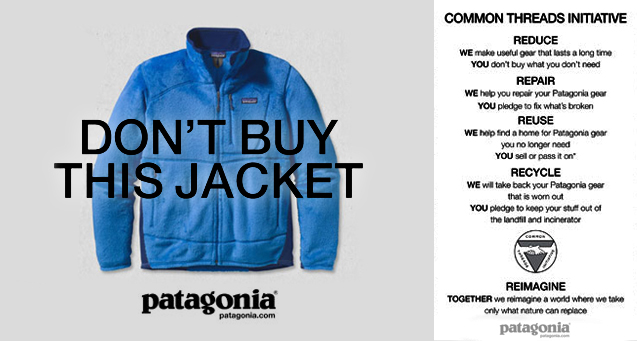The gig economy is alive and well. In fact, this modern online phenomenon has only…
The Future of Impact in Creative Strategy
There’s no denying the ripple effect business has on environmental, social, and governance issues — from the ways our natural resources are harvested to labor practices that exploit the world’s most vulnerable populations. Business impacts everything, but what about the effects of impact on business?
Historically speaking, big business has earned a bad rap due to long-term effects on the planet and its people. In a place and time where capitalism reigns supreme, short-term profits and quick returns often define that all-important bottom line. But the times, they are a-changin’.
A Focus on Impact
Societal shifts in awareness over the last decade—largely due to the advent of social media platforms—have seen consumers increasingly focussed on the impact businesses have on the world around them. Demanding greater transparency in production and labor practices, consumers aren’t only vocalizing their concerns online, they’re voting with their wallets and ethical brands are winning.

JUST Capital, a non-profit that tracks “just behavior” among top U.S. firms, finds that ethical companies consistently outperform their competitors. What exactly constitutes “just” behavior? The measures range from pollution and supply chain ethics to worker pay and treatment. Today’s consumers want to know when they make a purchase, their hard-earned dollar won’t contribute to harmful practices—but that’s not all.
Employees Want Benefits
Simply taking the evil out of the way a business operates isn’t enough. Both consumers and employees exhibit a growing interest in brands that make a genuine effort to be a force for good in the world. After all, for-profit companies are often better equipped to drive meaningful, long-term change than a local nonprofit or NGO that lacks the funding and resources for creative marketing, distribution and scalability.

According to the Harvard Business Review, roughly 90% of today’s workers are willing to accept a lower wage if the work they do is meaningful. This sentiment is especially pronounced among Millennials and Gen-Z who were dubbed as the “first generation to prioritize purpose over salary” in a study by WeSpire. These two age demographics will account for the majority of the workforce by 2025, and they won’t settle for employers who aren’t committed to making the world a better place.
Cause Marketing and Brand Strategy
Cause marketing comes in two flavors. The first is when a for-profit brand partners with a nonprofit organization. This usually involves a collaborative effort that benefits both parties. The Honest Company, for instance, partnered with the nonprofit March of Dimes, creating a landing page on their website to boost awareness of the organization’s “It Starts With Mom” campaign.
More broadly, the term also refers to marketing efforts by for-profit brands centering around social or charitable causes. At the start of 2020, Starbucks used its popular practice of writing customer names on cups in a pro-LGBTQIA+ commercial illustrating the journey of a trans boy as he starts using his new name in public. Starbucks was inspired to create the commercial after trans individuals posted their experiences on social media, relating how they used the ordering process at Starbucks to publicly try out potential names in a way that felt safe.
A Cause Marketing Strategy That Works
Today’s consumers aren’t just more savvy about corporate social responsibility (CSR) practices, they’re quick to point out when cause marketing efforts appear toothless or insincere. Support for various social issues also tends to divide along partisan lines. This makes incorporating cause marketing into a brand’s overall strategy a risky move, but one that ultimately pays off when it’s done right.
Know Your Audience
Understanding your target audience and their values is a key factor in deciding which causes to champion. After a particularly divisive political season, consumers look to brands not only as a way to express wealth or status but as a way to express their values and beliefs.
Keep Causes Close to Home
Cause marketing efforts tend to be well received when they align closely to the brand’s overall mission. That’s not to say random partnerships don’t work, but matching the cause to the company often helps facilitate long-term partnerships and genuine buy-in from consumers and employees alike.
It’s Not Just a Money Thang’
Sixty-four percent of consumers surveyed on the topic of cause marketing don’t believe monetary donations are enough. Brands need to incorporate their chosen cause into the way they do business, focussing on areas like supply chain diversity, sourcing materials ethically and improving internal company policies on diversity and inclusion.
A Cause for Celebration
The shift to more ethical and impactful business practices means better working conditions, more meaningful collaborations, and a healthier planet for all. Curmudgeon Group is a women-owned, mission-driven agency. We believe the way we do business impacts every corner of the world, and we’re determined to help make it a better place.




